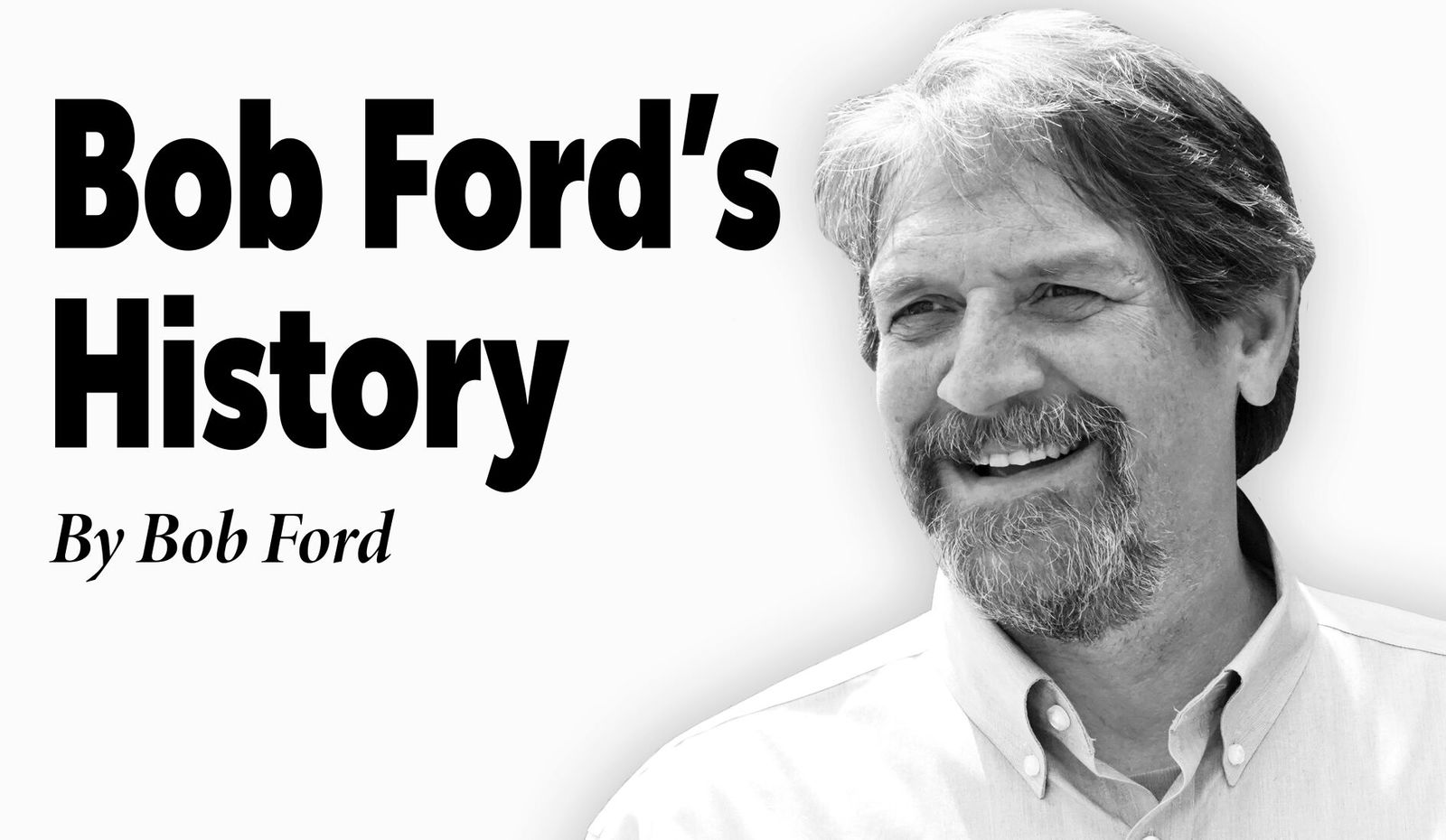Gen. Colin Powell honors the Buffalo Soldier

By Bob Ford Special to
Articles, podcasts and YouTube videos are complimentary from those helping preserve our history: Eagle Communications, Nodaway Valley Bank, Hughes Chiropractic, The Hearing Connection and Anonymous Buffs. To comment or join in supporting this non-profit, contact Bob at robertmford@aol.com.
Colin Powell lived the American dream. His character, determination and love of country never wavered.
Born in Harlem, New York, to Jamaican immigrants, he received his early education through the New York public school system, but he liked order.
Attempting to become an engineer at New York City College, he witnessed recruits drilling and became interested.
“Seeing cadets in uniform, I was attracted to it. I like structure, discipline, and being around a group that were just like me. I found another family in ROTC,” Powell said.
After entering the military, he steadily climbed the ranks. On Christmas day in 1962, now-Capt. Powell was sent to Vietnam as an “advisor.” He made several trips on patrol with ARVN troops in the Shau Valley close to Laos. He was a specialist, training South Vietnamese soldiers in fortification techniques and combat tactics.
His battalion would come under frequent sniper fire, causing gruesome casualties.
Powell would later write, “Every morning in the jungle I had to rely on my training and self-discipline to control my anxiety and move on … as a leader, I could not show fear.”
One day while on patrol, he stepped on a punji stick, causing a significant injury that turned into a bad infection. The infection affected his ability to walk and shortened his deployment. He received the Purple Heart for his actions.
Edna Wagner is the director of the Buffalo Soldier Museum in Leavenworth, Kansas. She remembers meeting Gen. Powell for the first time, “my husband was stationed in Washington D.C. I worked in a high-end appliance store when the general came in, he had a “honey do” list. They were re-doing a bathroom, he could not have been nicer.”
Throughout his career, Powell had the ability to command and motivate, but also put people at easy. A trait not always found in high-ranking officers.
In 1967, Powell, now a major, attended the War College in Fort Leavenworth, Kansas. It was there he discovered the lack of recognition for the Buffalo Soldiers.
In 1866, Congress created two all Black cavalry and four infantry regiments called the Buffalo Soldiers. These units were made up of former slaves, freed Blacks and runaways. This action changed the face of the military, marking the start of the slow and arduous assimilation of African-Americans into American culture.
There really wasn’t anything at the fort that honored the creation, men or actions achieved by the soldiers. Colin Powell was determined to do something about it.
He first received a $5,000 pledge from the commander of the Fort for a plaque, but that wouldn’t get it. Selling posters and raising money, Powell, Adrian Cruz, Navy Cmdr. Carlton Philpot and others were driven to give the Buffalo Soldiers their proper due.
As momentum grew to erect a statue in a park-like setting inside the Fort, so did the donations: General Motors, Hallmark Cards and Geiger Ready Mix among others stepped up to contribute.
A newly-formed commission retained a famed military sculptor named Eddie Dixon to create the iconic statue that now adorns Fort Leavenworth. Dixon has works of art at West Point, the Pentagon, the Smithsonian, Department of the Interior, the State Department and many other national historic sites.
It took years of struggles and perseverance but on July 22, 1992, Gen. Powell, now the chairman of the Joint Chiefs of Staff — the highest rank someone in the military can achieve — returned to Ft. Leavenworth to dedicate the Buffalo Soldiers Monument.
“On the morning of the dedication it was raining hard,” remembers Edna. “I spoke with the general and he calmly told me, ‘When it’s time to start, the sky will clear,’ He was right! It felt like divine intervention, moments before starting, the sun came out and shined brightly, it could not have been more perfect.”
The general would move on to even-greater positions, accepting a Secretary of State promotion that made him more political than military. He seemed out of his element and just didn’t look right in a suit. The military is about honor, duty and fortitude, whereas politics can be nasty, full of half-truths and fragile alliances.
It was Colin Powell who had to justify to the world why the United States and our allies invaded Iraq in 2003. Powell was the fall guy, it unfortunately tarnished his important and unprecedented legacy.
The Buffalo Soldiers Commemorative Area in Fort Leavenworth consists of the Buffalo Soldiers Monument, Circle of Firsts and Walkway of Units, which highlights individuals and accomplishments of these great but sometimes overlooked Americans.
You cannot tell the story of westward expansion in the U.S. without including the brave contributions of the Buffalo Soldiers who were given some of the roughest assignments with inferior equipment.
These soldiers also took part in warring campaigns against American Indians, helping Teddy Roosevelt whip Spain, suppressing a rebellion in the Philippines and later World War II. Nineteen Buffalo Soldiers have been awarded the Congressional Medal of Honor.
The Buffalo Soldiers and their development changed the military and in doing so America. It was a meager but meaningful start for African Americans toward a path of achievement and recognition, showing capabilities and worth … just ask Colin Powell.
As the general said so eloquently at the dedication, “I stand on the shoulders of these gallant soldiers.” A visit to the Fort and its Memorial is inspiring. The sacrifices others made so we can live free always humbles me.
While in Leavenworth, take a tour of the Frontier Army Museum on the Fort — it has a vast military collection like no-other — and go see my old friends Edna and William at the Buffalo Soldiers Museum. They are two dedicated people keeping the memory and importance of the Buffalo Soldier alive for all of us.



